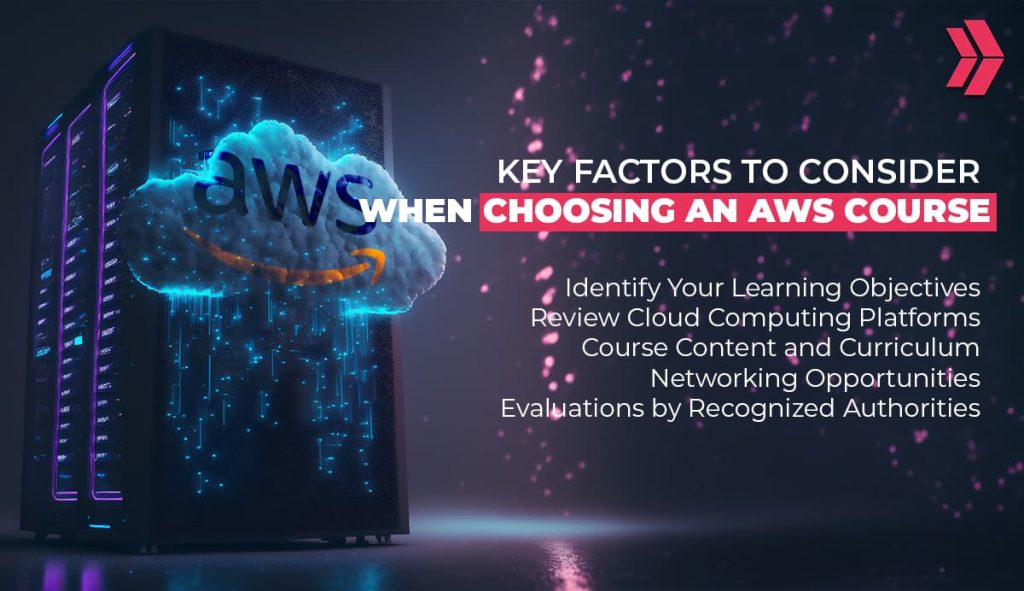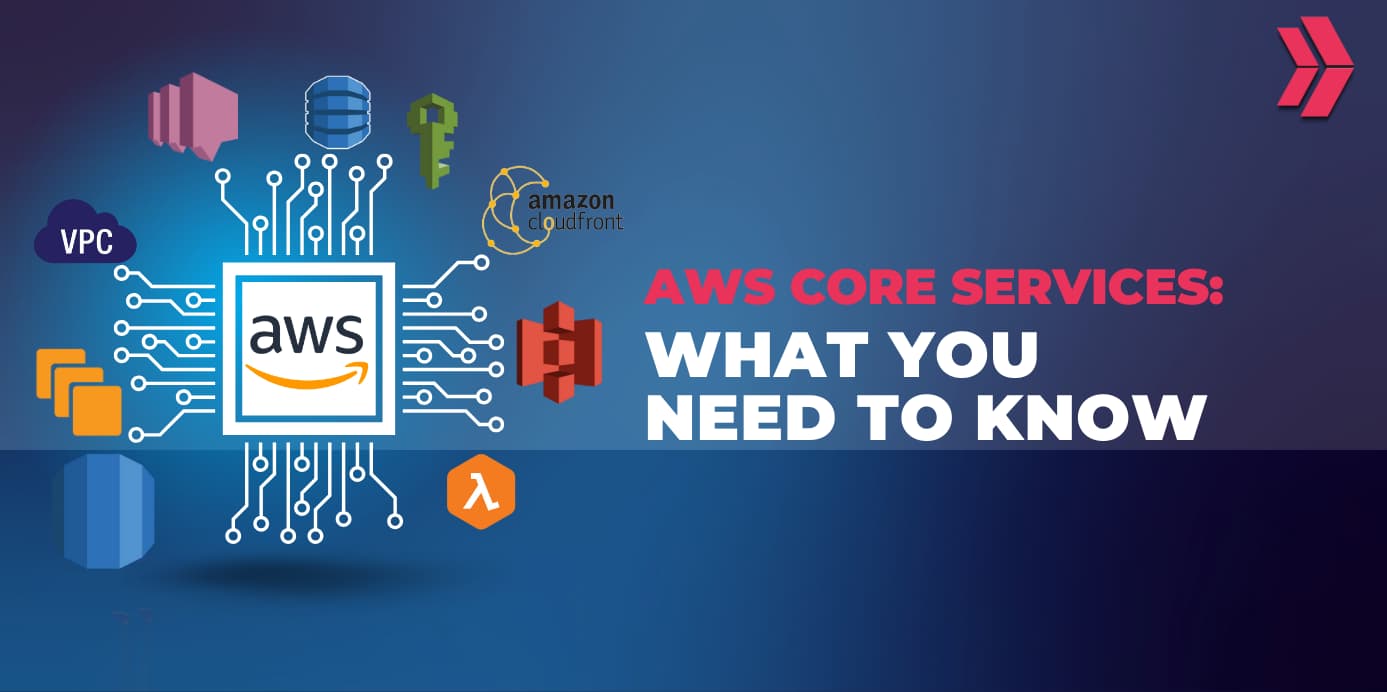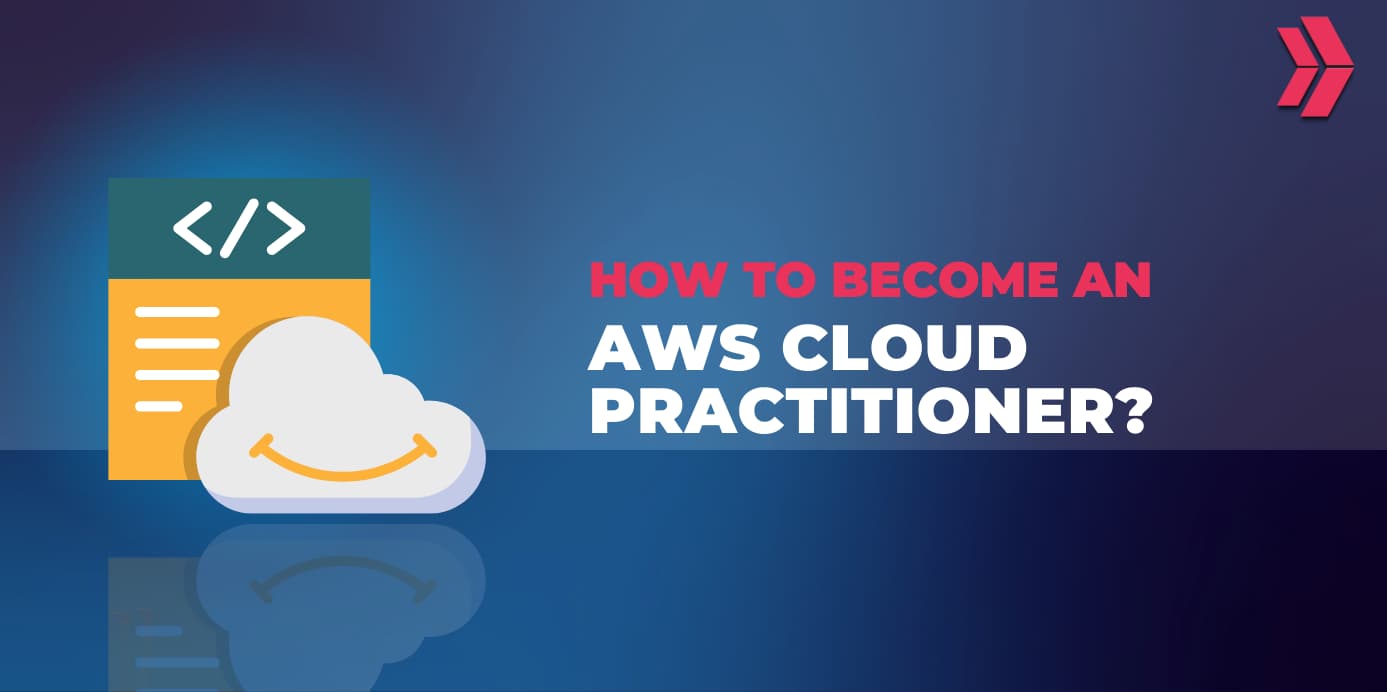Cloud computing has emerged as a critical IT industry component, transforming how businesses operate by offering scalable, efficient, and cost-effective solutions. Among the many cloud service providers, Amazon Web Services (AWS) stands out as a pioneer with its comprehensive service suite and global network of data centers. That’s why AWS remains a popular destination for cloud engineers.
For those who want to enter the world of AWS Cloud, choosing the right AWS course is an important step toward this career. As the demand for talented cloud professionals grows, choosing AWS training can significantly impact your professional trajectory. Whether you aspire to become a cloud engineer, architect, or developer, choosing an AWS course that aligns with your goals is the foundation for your future success.
There are many different types of courses for AWS. In this blog, we will guide you through the essential considerations to Choose an AWS course that best fits your career goals and aspirations. By focusing on critical aspects of courses, we aim to empower you with the knowledge you need to make an informed decision. It’s time to learn, understand, and prepare for a future where the cloud is not just an option but a necessity.

What are the Key Factors to Consider When Choosing an AWS Course?
When becoming a cloud engineer, choosing an AWS Course that suits your professional vision will be your first step towards achieving your career goals. If achieving certifications is part of your career strategy, verify that your chosen course aligns with the certifications recognized in the cloud industry. Consider the community and support provided by the course; access to a network of professionals and a forum for collaboration enhances your AWS training experience. Here are the 5 key factors to consider when selecting courses for AWS:
- Identify Your Learning Objectives
- Review Cloud Computing Platforms
- Course Content and Curriculum
- Networking Opportunities
- Evaluations by Recognized Authorities

1. Identify Your Learning Objectives
Before embarking on your AWS education journey, taking a step back and planning your career goals is crucial. This initial observation will help you choose an AWS course that matches the skills you’ll need to progress on your chosen path.
Determining your learning goals is about understanding where you want to go and where you currently stand in your cloud journey. This self-assessment involves careful examination of your current knowledge base and gaps in your technical skills, which clarifies your starting point and outlines the specific areas you need to focus on to achieve your learning and career objectives effectively.
This clarity not only simplifies the decision-making process but also ensures that the AWS course you choose is a perfect fit for your goals. By identifying your learning goals early, you can focus on courses that offer the most direct path to achieving your career milestones in cloud computing.
2. Review Cloud Computing Platforms
The cloud computing environment is vast and versatile, so researching various cloud platforms helps you choose an AWS course. A thorough understanding of the intricacies and offerings of different platforms, including Azure and Google Cloud, can provide a broader lens through which to view the cloud ecosystem.
By becoming familiar with various platforms, you can more clearly realize the unique advantages and potential applications of the AWS cloud, thus improving your course selection strategy and enhancing your overall education in the cloud.
3. Course Content and Curriculum
Course content and curriculum are very important when choosing an AWS course. A curriculum that aligns with the latest industry standards and practices ensures that the knowledge and skills you gain are relevant and in demand, making you a valuable asset in the job market. Courses for AWS that include hands-on projects and labs provide the practical experience necessary to apply theoretical knowledge in real-world scenarios, which is indispensable for mastering cloud technologies.
4. Networking Opportunities
The importance of the networking opportunities offered by AWS courses must be considered when choosing an AWS course. These opportunities serve as a gateway to expanding your professional network and directly impact your career development. By facilitating connections with industry professionals and peers, AWS training opens up avenues for mentorship, collaboration, and potential job opportunities. Whether through guest lectures, forums, workshops, or industry events, every interaction is a stepping stone toward building a solid professional network that supports your career development.
5. Evaluations by Recognized Authorities
When choosing an AWS course, the importance of considering reviews and testimonials from leading organizations in the education and technology sectors, such as Career Karma, Course Report, or Career Finder, cannot be overstated.
AWS courses that are positively reviewed by these platforms generally have a comprehensive curriculum that covers key AWS services, best practices, and practical applications. These courses are typically designed and delivered by AWS-certified professionals with significant industry experience, providing students with in-depth knowledge and insight into the cloud environment.
Is a Bootcamp Enough to Learn AWS?
The effectiveness of an AWS bootcamp varies depending on factors such as your goals, knowledge, and career plans. Let’s check both the advantages and limitations of bootcamps:
What are the Advantages of AWS Bootcamps?
AWS bootcamps are an effective way to gain foundational knowledge and skills in cloud computing quickly. Here are the top 4 advantages of AWS bootcamps:
1. Focused Curriculum
Bootcamps often have a curriculum designed to cover the most important aspects of AWS, ensuring learners get a comprehensive understanding of core services.
2. Hands-On Experience
Many bootcamps prioritize practical experience, offering projects and labs that simulate real-world scenarios.
3. Accelerated Learning
For those looking to break into the cloud computing field quickly, bootcamps provide a fast-paced learning environment.
4. Preparation for Certifications
Bootcamps can be an effective way to prepare for AWS certification exams, which are valuable for career advancement.
What are the Limitations of AWS Bootcamps?
Becoming proficient in AWS and cloud engineering often requires ongoing learning and practical experience beyond what a bootcamp alone can offer. Here are the considerations of bootcamps:
1. Depth of Knowledge
While bootcamps provide a solid foundation, the breadth and depth of AWS topics covered may differ from that of longer courses. Some advanced topics or specializations require further study.
2. Learning Style Compatibility
The fast pace and intensity of a bootcamp might only suit some’s learning styles. Some individuals may benefit more from self-paced or longer-term educational programs.
3. Career Objectives
If your career goal involves a highly specialized area of cloud computing, a bootcamp might serve as a stepping stone, but additional training and experience could be necessary.
Conclusion
To choose an AWS course, it is necessary to consider several key factors, such as career goals, course content and curriculum, networking opportunities, and reviews from reputed authorities. Each element is important in determining whether AWS training fits your goals. With these critical considerations in mind, Clarusway stands out as a leading AWS training provider, offering AWS and DevOps courses that really work.
The course curriculum at Clarusway covers the most widely used AWS services in detail, providing students with a thorough understanding of cloud computing. The awards received from reputable platforms such as Career Karma, Course Report, and Intelligent (https://www.intelligent.com/best-online-courses/cloud-computing-certifications/) emphasize the content and quality of his education. Also, Clarusway integrates networking opportunities into its programs, facilitating career development by enabling students to make valuable connections with professionals and peers.
Choosing an AWS course requires carefully considering your current skills and future goals to ensure they propel you toward your desired cloud achievements. Explore Clarusway’s diverse AWS offerings to find the course that’s right for you and take the first step toward cloud mastery today.



FAQs about AWS Courses
AWS training may seem confusing, particularly for those new to the cloud. The FAQ section contains questions that will help you make informed decisions about your cloud computing education and career.
Are There Any Prerequisites for AWS Courses?
The prerequisites for courses for AWS vary by level; basic courses typically require no prior experience, welcoming individuals new to cloud computing or those from non-technical backgrounds. However, advanced courses may require a basic understanding of networking, familiarity with programming languages (like Python or Java), and some hands-on experience with AWS services. In certification-oriented courses, practical AWS experience is highly recommended to grasp the application of concepts in real-world scenarios effectively.
What Jobs Can You Get After AWS Courses?
After completing the courses, the range of AWS jobs in cloud computing expands significantly. Here are some of the roles you might pursue:
-
- AWS Solutions Architect
-
- Cloud Developer
-
- DevOps Engineer
-
- Cloud Systems Administrator
-
- AWS Cloud Consultant
Can You Get An AWS Job With No Experience?
Here is the most asked question “Can You Get An AWS Job With No Experience?”. Transitioning to a career in cloud computing without a traditional technology background is indeed possible. AWS certifications and foundational knowledge gained through AWS courses can significantly bolster your chances by demonstrating your commitment and understanding of cloud concepts, even without traditional work experience.




